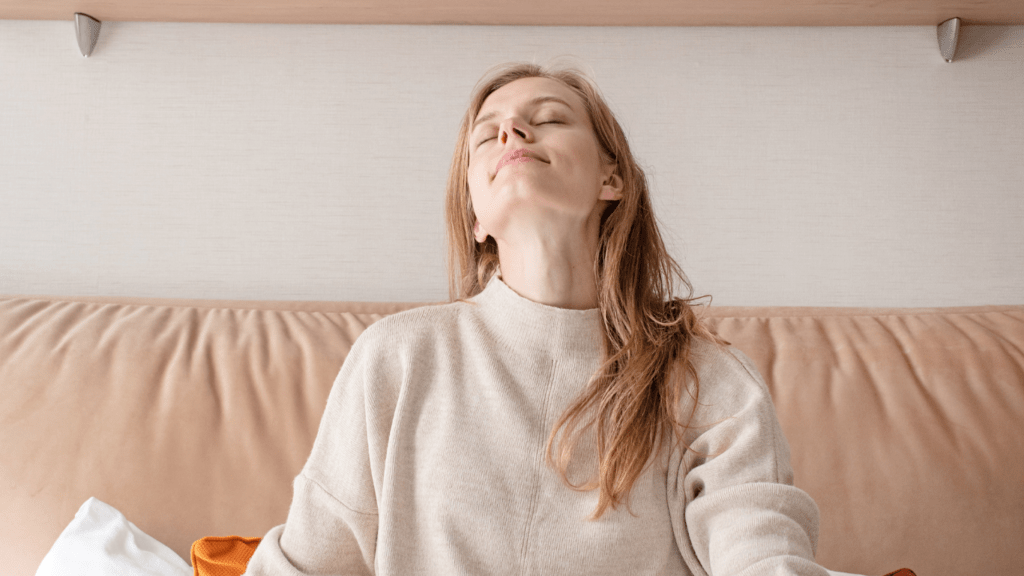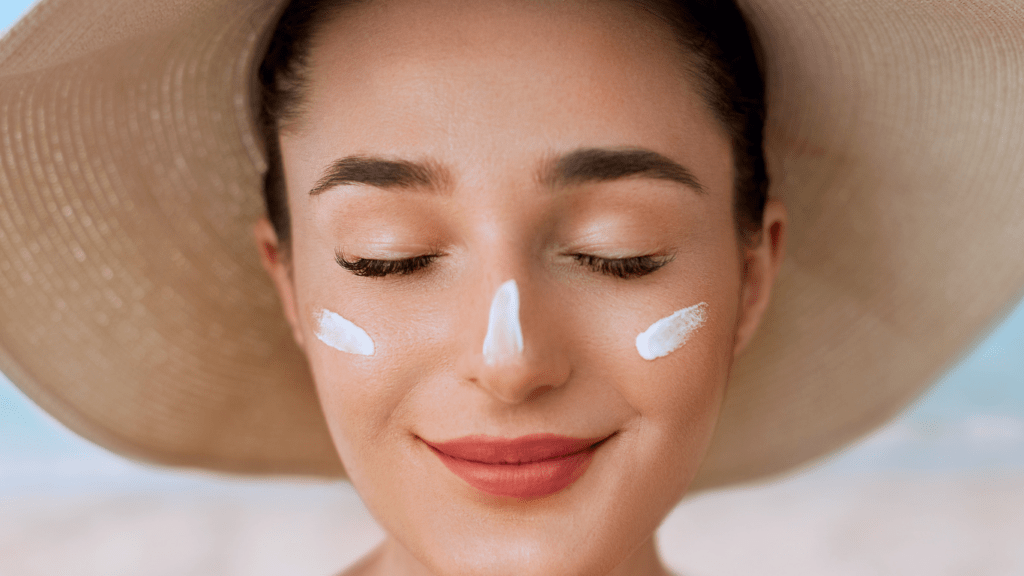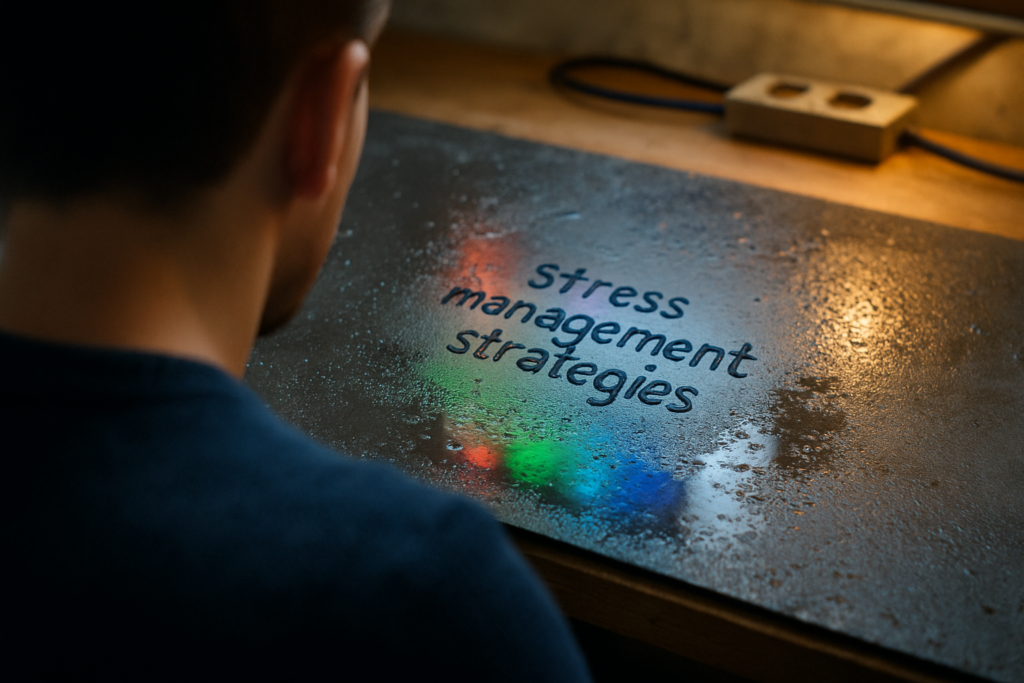The Connection Between Mental Health and Skin Health
Mental health and skin health are intrinsically linked. Research shows that our emotional state can significantly impact our skin’s appearance and condition.
How Stress Affects Skin Condition
Stress triggers the release of cortisol, a hormone that increases oil production in the skin. This excess oil can lead to clogged pores and acne breakouts.
Chronic stress can also weaken the skin’s barrier, leading to dryness and irritations. For example, I often notice my skin becoming more sensitive and prone to inflammation during busy work periods.
Psychological Conditions with Skin Symptoms
Certain psychological conditions manifest as skin symptoms. Depression can lead to neglect of personal skincare routines, resulting in poor skin hygiene and subsequent issues like rough texture or dullness.
Anxiety can cause compulsive skin behaviors such as picking or scratching, often exacerbating skin conditions like eczema or psoriasis. When I felt overwhelmed before a major presentation, my eczema flared up, highlighting this connection.
These instances underscore how mental health plays a vital role in maintaining glowing, healthy skin.
Benefits of Good Mental Health on Skin Appearance
Good mental health significantly enhances skin appearance. Quality mental well-being promotes physical processes that keep the skin radiant and healthy.
Improved Skin Barrier Function
Mental health positively affects the skin barrier. A strong skin barrier protects against environmental aggressors and prevents moisture loss. Stress decreases skin barrier function, making skin more vulnerable.
When I’m less stressed, I notice my skin retains hydration better, appearing smoother and more supple. Research by the American Academy of Dermatology supports this correlation between mental health and skin hydration.
Reduction in Skin Inflammation
Good mental health reduces skin inflammation. Stress triggers inflammatory responses, leading to conditions like:
- acne
- eczema
- psoriasis
In contrast, a calm mind lowers cortisol levels, reducing inflammation. For instance, on days when I practice mindfulness, my eczema flare-ups diminish considerably
Studies published in Psychosomatic Medicine indicate that mental well-being directly influences inflammatory skin conditions. Positive mental health practices contribute to a clearer complexion by minimizing inflammatory triggers.
Tips for Maintaining Mental Well-being for Healthier Skin

Mental well-being significantly affects skin health. Implementing effective strategies improves both mind and skin.
Daily Stress Management Techniques
- Reducing daily stress maintains mental well-being and enhances skin.
- Practice deep breathing, which calms the mind and regulates cortisol levels linked to acne and inflammation.
- Engaging in physical activities like yoga or jogging releases endorphins, lowering stress and improving skin appearance.
- Mindfulness and meditation help focus the mind, fostering emotional balance and reducing skin issues triggered by stress, such as psoriasis.
Importance of Sleep and Diet
Quality sleep and a nutritious diet are pivotal for mental health and glowing skin. Seven to nine hours of sleep every night enable the body to repair skin cells, reducing dark circles and dull complexion.
A diet rich in fruits, vegetables, lean proteins, and whole grains provides essential vitamins and minerals. Omega-3 fatty acids found in fish and flaxseed lower inflammation and support skin hydration.
Balanced nutrition and adequate sleep ensure the skin gets the necessary nourishment and restoration.
Social Connections and Support
Strong social connections improve mental health, consequently benefiting skin. Engaging in social activities and maintaining relationships reduce feelings of loneliness and stress.
Emotional support from friends and family improves mood and lowers stress levels, resulting in healthier skin. Participating in group hobbies or community events provides a sense of belonging, promoting overall well-being and radiant skin.
Recommended Treatments and Therapies
Clear skin benefits from a healthy mind. Several treatments and therapies can promote both mental health and skin well-being.
Psychological Therapies and Their Benefits for Skin
Counseling sessions, particularly cognitive-behavioral therapy (CBT), help manage stress and anxiety. Reduced stress levels lead to decreased cortisol production, which in turn minimizes inflammation and breakouts.
According to the American Psychological Association, CBT effectively treats depression and anxiety disorders, which commonly manifest as skin issues like acne and eczema.
Mindfulness-based stress reduction (MBSR) teaches techniques such as meditation and mindful breathing. These practices help lower stress, thereby improving skin condition.
Studies, like one published in JAMA Dermatology, show that patients with psoriasis experienced reduced severity of lesions with regular mindfulness practice.
Holistic Approaches to Enhance Both Mental and Skin Health
Holistic treatments focus on the connection between mind and body, leading to improved skin health. Yoga combines physical postures, breathing exercises, and meditation to reduce stress and enhance skin appearance.
The International Journal of Yoga reported that yoga practitioners exhibit lower levels of stress hormones, resulting in clearer skin.
A balanced diet rich in antioxidants, omega-3 fatty acids, and vitamins supports both mental and skin health. Foods high in omega-3s like salmon and walnuts maintain skin elasticity and hydration.
Antioxidants found in berries and leafy greens combat oxidative stress, reducing skin damage and promoting a healthy glow.
Aromatherapy uses essential oils like lavender and chamomile to reduce anxiety and improve sleep quality. Better sleep leads to reduced skin cortisol levels and enhanced cellular repair.
Research from the National Center for Biotechnology Information shows lavender aromatherapy improves sleep, which positively impacts skin health.
Acupuncture stimulates specific points on the body to balance energy flow, reducing stress and improving skin conditions. A study in the Journal of Alternative and Complementary Medicine indicates acupuncture’s effectiveness in decreasing anxiety, contributing to healthier skin.
Incorporating these treatments and therapies into daily routines can lead to significant improvements in both mental health and skin condition.


 Nicoleeny Castrolos, the founder of Body Care And Matter, is a passionate advocate for health and wellness. With a deep commitment to improving the lives of individuals, Nicoleeny has built a platform dedicated to delivering the latest insights on men’s and women’s health, nutrition, and mental wellness.
Nicoleeny Castrolos, the founder of Body Care And Matter, is a passionate advocate for health and wellness. With a deep commitment to improving the lives of individuals, Nicoleeny has built a platform dedicated to delivering the latest insights on men’s and women’s health, nutrition, and mental wellness.

